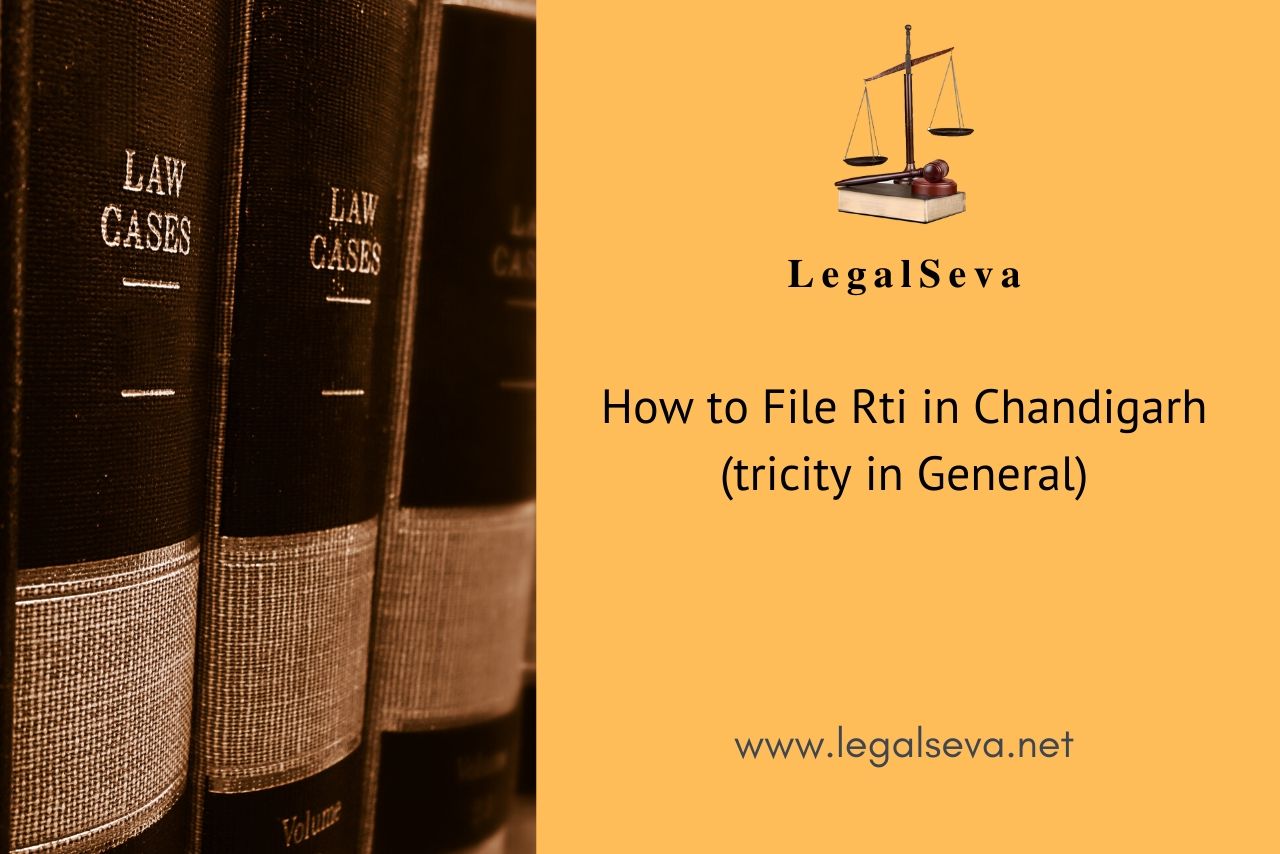Last Updated on May 21, 2024 by Satish Mishra
RTI means Right to Information which is protected, safeguarded and promoted by Constitution of India via RTI (Right to Information Act) , 2015. Under this act, any individual who is a citizen of India can request any information (except information protected for security, interest and breach of peace) from any Public Authority.
Chandigarh is by far the most beautiful, cleaned and of the first planned cities in India. You will always want to come back to this city whenever you will cross it in any of your journeys. Yes, I’m definitely a fan boy of this city. Chandigarh, being a model Smart City has advanced mechanism for the RTI applications. Fully functional websites will take you to the appropriate departments where you can fill the RTI online without any hassle.
Link to Submit RTI in Chandigarh is here- https://chandigarh.gov.in/submit-rti-application
Before that let us know a little about RTI in brief.
RTI has brought transparency and accountability into the functioning of the government. All Central and State Government authorities have their own respective mechanism of RTI at various levels.
- First Stage where information is sought from PIO at Department Level. (Online/Post)
- First Appeal against the information received.
- Second Appeal with the Information Commission set up at Central/State Level.
However, Defence, National Security forces and other important Organizations covering matters related to national security are out of the purview of RTI including J&K.
Online Link to Submit it is here- https://rtionline.gov.in/
Submit RTI in quick easy steps:
1 Visit online or send the application via government post (keep the proof)
2 Know your relevant department/ vertical where application will be entertained. PIO (Public Information officer) in various departments will help you out.
3 Or you can visit the office and know where are the RTI applications are received.
Going by the statute, your application must be answered within 30 days and in life and death cases in 48 hours. Time taken for calculation and intimation of fees excluded from the time frame.
Also Read- Information to Be Asked Under Rti?
The essential requirements of an application filed under the RTI Act are:
(a) Applicant must be a citizen of India.
(b) Particulars of information sought clearly stated.
(c) Enclosed the fee paid. Today most of the departments have online mechanism.
(d) Applicant address be given for reply.
Personal details only necessary to contact are required, even by the PIO.
In Chandigarh, RTI can be filed in directly to the concerned Public Information Officer (PIO) or any of the e-Sampark/Jan Sampark and Gram Sampark Centres located in various parts of the city.
Also Read- Right to Service Commission Chandigarh
How it works:
1 Centres mentioned above will collect your application and issue you a receipt on submission with application number. To know the CPIO concerned click here.
RTI today is sword in the hands of its citizens who can fought any evil, malpractice , injustice , indifference in hands of government authorities or exploitation of the weak by strong. Information is what makes us strong and confident today added transparency into the system.
RTI tool is only available to Citizens and not to corporations, associations, or companies.
When can your RTI be rejected? Let’s have those scenarios:
Exemptions clauses: If the application falls under the Act’s exemptions clauses
Published information: If the requested information has already been published, such as on the internet or in a book
Repeated requests: If the requests are becoming vexatious and have been made repeatedly
Prejudice to India’s sovereignty and integrity: If the information could prejudice India’s sovereignty and integrity
Security of the state: If the information could compromise the security of the state
Strategic, scientific, or economic interests of the state: If the information could compromise the state’s strategic, scientific, or economic interests
Relations with foreign states: If the information could compromise India’s relations with foreign states
Contempt of court: If the information could be considered contempt of court
Defamation: If the information could be considered defamation
Incitement to an offense: If the information could be considered incitement to an offense
Commercial confidence, trade secrets, or intellectual property: If the information could compromise commercial confidence, trade secrets, or intellectual property
Fiduciary relationship: If the information could compromise a fiduciary relationship.
Can you ask questions under RTI?
- As per the NIC website, – The public authority under the RTI Act is not supposed to create information; or to interpret information; or to solve the problems raised by the applicants; or to furnish replies to hypothetical questions. Only such information can be had under the Act which already exists with the public authority.
The information seeker is not required to give reasons for seeking information.
